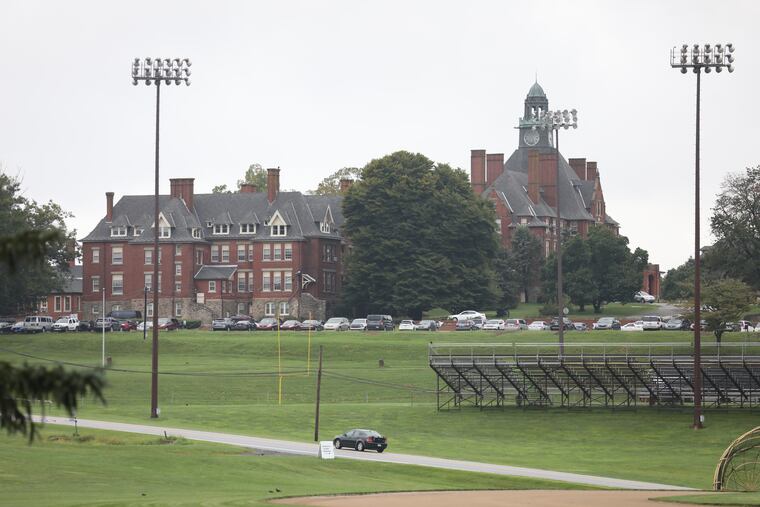Was youth in Glen Mills subjected to cruel and unusual punishment? | Editorial
It's hard to know if any investigation can help guide policy makers towards good solutions if there are such broad discrepancies between the stories.

In 2016, 17-year-old David Hess suffocated in a scuffle with attendants at the now-shuttered Wordsworth, a West Philadelphia institution for troubled youths. In 2010 and 2011, two ex-Luzerne County judges were convicted of taking kickbacks for shunting children to treatment centers. And now there is a troubling story from the Glen Mills Schools, a juvenile detention facility in Delaware County, in which a 17-year old boy says he was punched in a violent clash with a counselor.
When Philadelphia City Council members Helen Gym and Kenyatta Johnson held hearings on residential facilities in May, Gym told children who'd suffered abuse, "We should have done more to protect you."
She's right. It takes more efforts and oversight among state, city, and institutional leaders.
Other incidents of physical — as well as sexual and emotional — abuse at residential facilities came up during the spring Council hearings. Gym has convened a task force to figure out how to protect the children who live there. It includes experts from the city's Department of Human Services, the District Attorney's Office, the Defender Association, the School District and others.
City Human Services Commissioner Cynthia Figueroa says she has reduced the number of children in the centers and is reassessing the facilities with input from the children and youth who live there.
In May, the city had about 1,300 children in 70 facilities at an annual cost of $70,000 per child and $30 million more to the School District. The state, which has ultimate oversight of these facilities, still hasn't answered questions about how much money it spends for children housed in them and its inspection process.
But in the wake of the July 19 Glen Mills incident, the state Department of Human Services, the state police and the city launched investigations. The city has stopped sending additional children to Glen Mills. The institution fired the counselor and another staffer.
At the heart of the Glen Mills incident are two very different versions of what happened. The boy says a counselor pulled him up by his collar and slammed him onto the floor, where two other staffers held his legs as the counselor choked and punched him. The school's version is far more mild. In its incident report, Glen Mills says the child was "slapped several times" and lifted off a couch, and staff merely "restrained" him on the floor.
The boy also alleges that a staffer tried to talk him out of reporting the incident, even telling him that if he left Glen Mills, he'd wind up serving more time.
It is chilling that as this child was being contained by staffers, about three dozen other detainees watched quietly. They were "motionless and emotionless," the boy's attorney, Leonard Hill, told staff writer Lisa Gartner. "No one said anything. Like it was normal."
Such events cannot be normal.
The state should use its investigation as an opportunity to take a hard look at its requirements for the adults and institutions it entrusts with vulnerable children. It should move quickly to do more to protect young people, especially those in the justice system, from what appears to be cruel and unusual punishment.